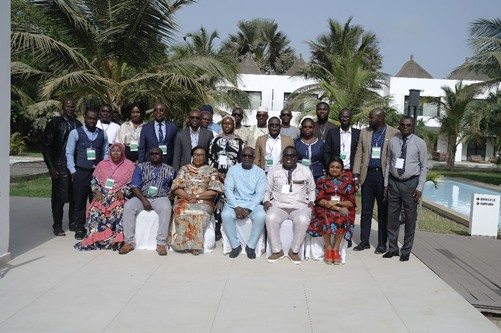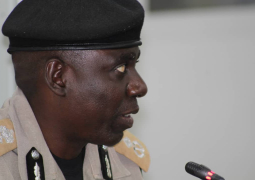
Funded by the African Development Bank (AfDB and organised by West African Health Organisation (WAHO), the forum is currently underway at Tamala Beach Resort.
Additionally, the forum also seeks to equip national teams with the tools, knowledge, and collaborative frameworks needed to improve and institutionalise safe, sustainable and efficient biomedical waste management practices.
Momodou T. Nyassi, director of Health Services, Ministry of Health of The Gambia, described the initiative as not only timely, but also crucial as countries navigate the ongoing challenges posed by the Covid-19 pandemic and its impact on health systems.
“As we embark on this journey together over the next few days, we must acknowledge the significant role that effective biomedical waste management plays in safeguarding public health and the environment.”
The pandemic, he said, has intensified the volume and complexity of biomedical waste generated by healthcare facilities while also highlighting the urgent need for robust management practices to mitigate risks.
“Our gathering here today is a testament to our collective commitment to addressing these challenges. We are fortunate to have a diverse group of experts, practitioners and our policymakers in the room, each bringing valuable insights and experiences from their respective fields.”
Dr. Nyassi reminded that the forum was also designed to foster collaboration, knowledge sharing and the development of best practices that can be adapted and applied across regions.
“Throughout this workshop, we will engage in meaningful discussion on various aspects of biomedical waste management including regulatory framework, waste segregation, safe disposal methods and training programmes for health care workers. By enhancing our understanding and capacities in these areas, we can develop strategies that not only comply with existing regulations but also promote sustainability and resilience in our healthcare systems.”
He expressed optimism that together, they can pave the way for safer and more effective biomedical waste management practices and contribute to healthier communities.
For her part, Miatta Lily French, ECOWAS resident representative to The Gambia on behalf of the ECOWAS Commission, said the initiative forms part of the Exceptional Emergency project designed to combat Covid-19 and strengthen the Health Systems of The Gambia, Mali and Niger funded by the African Development Bank and implemented by the West African Health Organisation.
Ambassador French acknowledged that the Covid-19 pandemic severely tested global health systems, adding that beyond the immediate crisis, it also exposed long-standing gaps - none more urgent than the challenge of biomedical waste management.
“From discarded masks to used test kits and contaminated syringes, the pandemic generated unprecedented volumes of hazardous waste — endangering healthcare workers, communities, and our environment. This workshop is therefore both timely and essential. It is a platform not only for training, but for strategic alignment, experience sharing, and regional coordination.”
To that end, she commended the WAHO for its technical leadership and expressed sincere appreciation to the African Development Bank for its unwavering commitment to strengthening health systems in West Africa.
“Biomedical waste management must no longer be treated as a peripheral issue. It must be mainstreamed into our national health policies, supported by strong legislation, sustainable financing, skilled and personnel, robust infrastructure, and meaningful public-private collaboration.”
That, she said, is how they ensure that hospitals remain places of healing, not sources of contamination.





